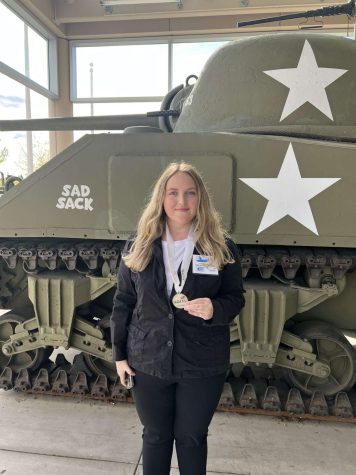Living With IBS
The summer before my Freshman year of high school was just about the best time of my life. I’d just left behind the most awkward years of my life and was more than eager for the fresh start awaiting me that fall. I’d spent most of the summer working on my tan, going on vacation, and swimming at my best friend’s house. Life couldn’t get much better, right?
Once September rolled around, my excitement slowly turned into nerves. Causing me to venture out to the bathroom more often that usual. I’ve never had the best relationship with my stomach, so it didn’t strike me as abnormal that I’d been having the occasional ‘bubble gut’ through my first few weeks of the semester.
I still went about my life partaking in the normal activities of a teenage girl. Plus the infrequent, thirty minute long trips I would occasionally make to the can. But that’s normal, so I thought. I guess it didn’t resonate with me that something was wrong, until one day in particular. I recall I was having a rather bad bout of what seemed to be a stomach bug.
But as I sat in the middle of Algebra trying to keep my mind on the linear equations I couldn’t help but drift. And that’s when it hit me, by far the most crippling abdominal cramp I’d ever experienced. Naturally, I wanted to grasp my stomach and groan but being surrounded by dozens of other fifteen-year-old kids, expressing my pain just wasn’t an option. I tried my best to ignore it and get on with my worksheet, but as the excruciating pain subsided it turned into something much worse. As the “I gotta go NOW!” sensation set in, I tried my best to craft the best excuse I could to leave the classroom. I think that was the moment that it dawned on me that something was really wrong and it wasn’t just the stomach flu.
After that days episode I continuously dreaded going to Algebra, in fear that it would happen again. Goodness knows how many times I violated the unspoken rule of only using the restroom once every week in each class and felt unthinkable shame for that reason.
Finally, after suffering for months with these symptoms I made an appointment with my physician who informed me that I had Irritable Bowel Syndrome and there was really little I could do about it. Just enjoy the good days while they last, and try to control the urgency as best as you can.
Sadly, this is the reality for 45 million people in the U.S. Feeling ashamed because of uncontrollable urgency isn’t something us IBS-sufferers aren’t used to. As well as the additional fear faced in pretty much every social situation involving food. You’re probably wondering, “Why don’t you just take some medication?” Speaking truthfully, there really is no medication specifically targeting the disease. It isn’t something like colitis were the symptoms are consistent and manageable with supportive care. With IBS every symptom is erratic and apt to change from day to day. (ie.) constipated one day, having diarrhea the next. Complicating plans, activites, and other crucial things to a socially-active person’s life.
This disease can be cripplingly inconvenient, not only to to the people who suffer with this ailment but their friends, family, and acquaintances are all impacted by the frequent trips to the John. These trips can not only be inconvenient but can sometimes be even frightening to people who aren’t familiar with the symptoms or the disease itself. Because the symptoms are so generic something harmless (yet painful) like IBS can be easily confused with diseases such as Crohn’s, Ulcerative colitis, and even certain types of cancer. Countless hospital trips per year are made due to IBS symptoms that people confuse with other deadly diseases. And because so little is known about this syndrome and the symptom vary from person to person it’s hard to pinpoint exactly what it is at times. And just because nothing can be done, doesn’t mean the pain isn’t still there. Patients will still continue to visit their physician for the same symptoms that persist. In turn, Doctors will grow more frustrated with patients that haven’t followed the extremely strict diet plan and return to their office complaining. Just like the suffer’s family and friend’s that continuously disregard their struggles and show no sympathy.
How do we fix this? Well, understanding goes a far way. Just being there and supporting your loved one with this illness can make the most difference. So next time someone has to rush to the restroom urgently, have a little compassion.








